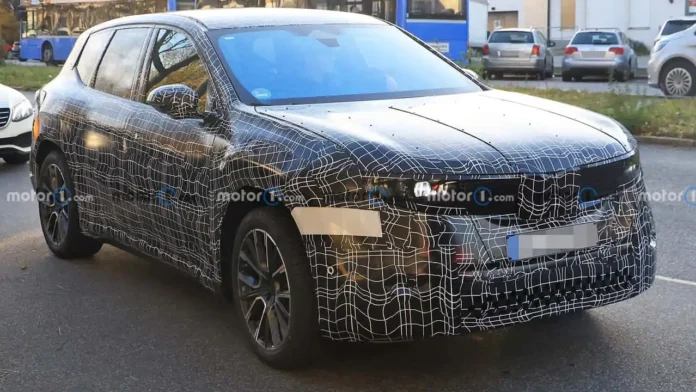Even at this early stage of development of this SUV, fragments of the front section are visible. We see hints of the Neue Klasse concept, although the headlights don’t appear to be the final production examples. Last August, BMW confirmed that the first product based on the Neue Klasse platform would be an electric sedan. We will not speculate on this topic, but we will mention that production of the family electric vehicle is expected to begin in Hungary in July 2025.
“By the end of the decade, the Neue Klasse will probably account for more than half of our sales,” said BMW boss Oliver Zipse last year. Of course, we expect versions with rear-wheel drive and all-wheel drive, as well as different battery packs. Initial reports suggest the range between charges will be 360 miles, depending on battery capacity. Within two years of launching the successor to the iX3, BMW will launch up to five electric vehicles. Some of them will be manufactured in Germany, and by the end of the decade the South Carolina plant will begin producing models based on the Neue Klasse.
Seeing the second-generation demonstrate out on the street likely implies BMW has commenced real-life testing of Gen6 batteries with circular cells. In late October, the automaker begun a small generation of circular cells that will be going into Neue Klasse EVs. As a update, the modern batteries are touted as having 20% higher vitality thickness, whereas charging speed and run are anticipated to hop by 30%. In expansion, BMW touts it’ll be able to slice emanations amid the generation prepare by 60% and halve manufacturing costs.
Circular cells will have a 46-mm distance across and two statures: 95 mm for cars and 120 mm for SUVs such as this iX3. Whereas the current CLAR-based iX3 is made in China for all markets, its substitution (“NA5”) is aiming to be collected at BMW’s unused plant in Debrecen, Hungary. We’re hearing arrangement is planned to commence production in July 2025 and Europe will get it by spring of 2026.



